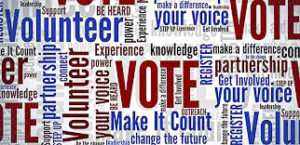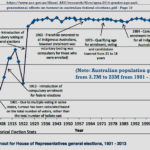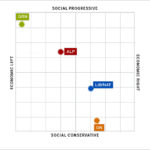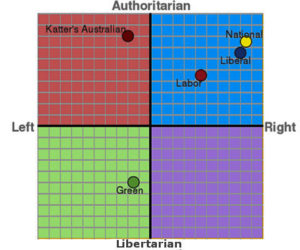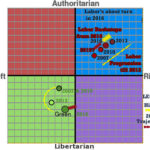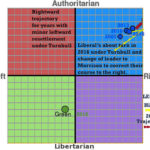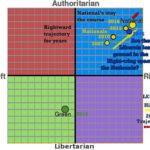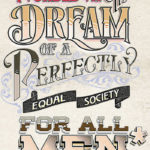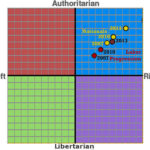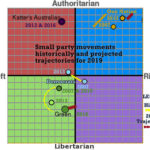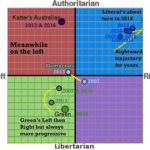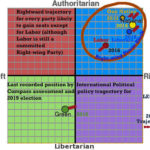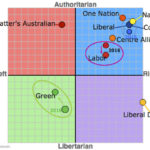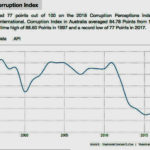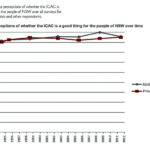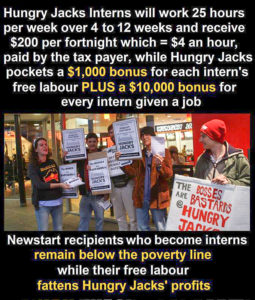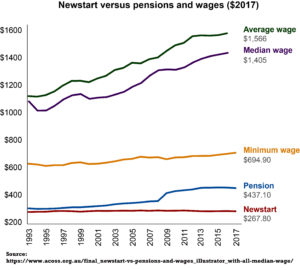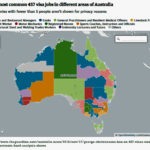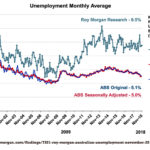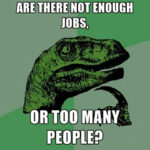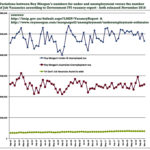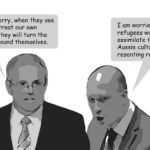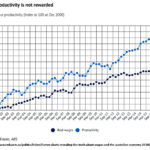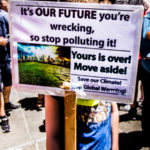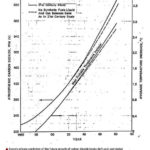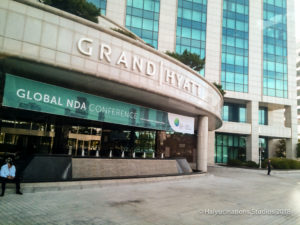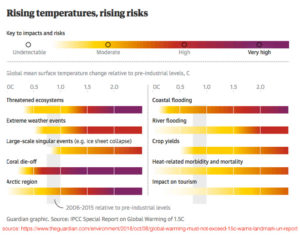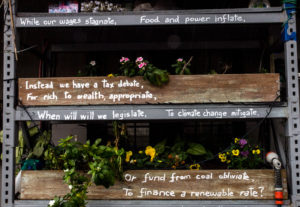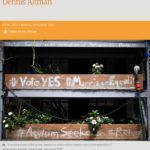Children are striking in the streets and demanding an effective response to climate change, while many adults sit on their hands. It is a sharp illustration of intergenerational conflict, and Greta Thunberg has become a lightning rod for that conflict.
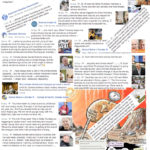
Social media is awash with objections by conservative commentators. The abrupt and defiant language of children protesting at Climate Strike events confronts them. The disparagement of Greta Thunberg in the media has reached fever pitch in some conservative circles. The conservatives appear to have abandoned their allegiance to “free speech” principles, again.
Greta Grief

Now it is everything from “crisis actor”, to whom she associates with, to she’s a “spoilt brat“. The later expressed by Jeremy Clarkson, who in turn was swiftly rebuked by his daughter. Other women such as Miranda Divine accused unknown agents, or even Greta’s parents of child abuse and a school headmaster described her as a ‘little girl’ with ‘mental problems‘. This from people who are responsible for our children’s education! You would hope that an educator would minimally understand how Autism works. In fact, despite the stereotyping by the less well educated (which appears to include old white school headmasters), being on the Autism spectrum can provide one with a superior capacity to focus. As the health site “Betterhelp” reports, “For example, people with Asperger’s don’t have trouble with verbal communication. In fact, many have been gifted with extraordinary verbal skills, some do well in school, and many have above-average IQs.”
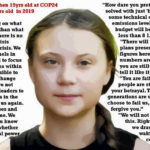
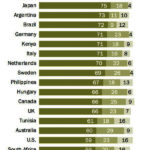
Mind you, Greta had demonstrated quite the capacity to defend herself, protesting that, “They come up with every thinkable lie and conspiracy theory.” It’s not like the generational divide hasn’t been a feature of every previous protest and societal struggle, but with the advent of social media, the conservative minority voice has been amplified out of all proportion to their numbers.
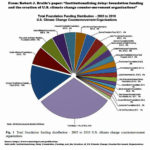
Interestingly on that subject, rarely does the subject of the “science” emerge in the conservatives criticism. When it does, it goes beyond parroting debunked right-wing dogma, as it has revealed the enmeshed relationship between the conservative press, mining barons and political parties. These self-interested groups will stop at nothing to protect their vested interests and are quite literally prepared to sacrifice children and their future.
Yet Greta is triggering the troglodytes and eliciting bullying from a notably dominantly loud demographic in our society – Conservative and Privileged Old White Misogynists.
CAPOWM
The rage of Conservative and Privileged Old White Misogynist (CAPOWM) men is leading the charge. Miranda Divine and Daisy Cousens would demonstrate that it is not an exclusively male opposition. #notall[are]men! 😎 Irrespective, the role of women in outrage over Greta, is dwarfed by the sheer numbers of male counterparts.
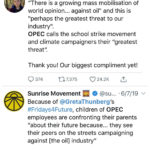
CAPOWM men feel very affected and threatened by a 16-year-old girl in plaits in a way they do not feel affected by about thousands of scientists and adult climate activists. Despite adults protesting, the idea of children conducting a school strike is seen as an existential threat that invokes a moral panic previously unseen. This “existential threat” is breaching some fundamental principle these CAPOWM men hold to be sacrosanct.
- These men hold that Elder men are authoritative and demand respect for their “masculine role” and Greta is challenging the status quo and daring to raise her voice to confront her elders on their failures to attend to these climate issues.
- These men hold that woman and children should be subordinate, and Greta is challenging their authority and refuses to back down to them.
- These men maintain that they have the right to power and authority, and Greta is building a groundswell of popular power to rise and challenge their “throne of swords”.
- These men have always been able to blackmail, bully and bribe, but she is so bold and so young that they can find no means of leverage and find themselves in foreign territory. Perhaps not dissimilar to the British response when they faced off Joan of Arc.
-

The attitudes of your children’s coaches? These men realise they cannot reduce this young woman to being a sexualised compliant tool whom they can manipulate to disparage or compromise. Although Tommaso Casalin, an Italian youth football coach, thought otherwise and was justly sanctioned.
- These men fear the loss of their wealth, power or privilege or that they will be asked to share any part of it!
- These men realise it is inherently wrong to attack a child and are confronted by the power of her honesty. They know they lack the moral high ground and hate being out manoeuvered.
Finally, my eighth reason and one – which when I read online – I initially thought was satire. I searched in vain through the article page for the satire disclaimer. It wasn’t satire! I have seen it replicated a few times now. I baulked at adding this because – while acknowledging toxic masculinity – I inaccurately assumed, this was a minority of chest-thumping men who felt afflicted by this issue.
-

The critical evaluation of Misogyny These men’s toxic masculinity has such a firm grip on their psyche; they feel that if they engage in eco-friendly behaviour, they’re worried it might undermine their masculinity. In short, being seen as “green”, is perceived as “too girly”. WTF!
As a personal interjection, I find it quite hard to wrap my head around the last one. Since I thought it was satire initially, I can only reference Mark Humphries or The Chaser’s real satire by way of providing these men with clarity.
Decent Men!

Decent older men, don’t behave like this! And I want to finish this article with an inspiration I took from the Student Climate Strike in Kyoto, Japan which our family attended on the 20th of September 2019. My son has not missed any of the School Climate strikes in Australia, but we were in Japan when this one occurred. My son is no “Greta”, even if he understands the crisis of anthropogenic climate change. He is a self-effacing lad not prone to outbursts of radical self-expression or shouting slogans in people’s faces, although I have heard him joining in the chants at protests of his own volition. Although, only when he didn’t notice his proud father looking on. I spoke of his attendance at the first strike in this embedded article.


It was witnessing the “passing of the baton” from one generation to the next, in the Japanese march that caught my attention, amidst all the photographs and recordings I made. The protest started with some speeches at Maruyama Park (an urban park known for its cherry blossoms). Protestors formed an orderly procession under the constructive direction of police officers who at intervals reminded people to drink water to fend off any dehydration. Compared to the harsher attitudes of Australian police over climate protests invoked by Government lies, the courtesy and concern of the escorting police existed as a sharp contrast. The chants expressed by the protestors alternated between English and Japanese.

Amongst the protestors was an old man in a wheelchair, holding a sign in his lap that read, “No peace without Global Justice”. As the parade progressed down the street, I noted he was missing. The young lady (and accompanying gentleman) who had been pushing his wheelchair was holding the sign. After not finding him in the crowd, I approached them and interviewed them, as to where he had gone. As an older man, he wanted to participate for as long as he could in the student’s strike but had a medical appointment pending. He passed his sign back to the younger lady and left, in effect passing the baton back to youth to carry the cause on. She carried his sign until the end of the march.
Could we perhaps refrain from being foolish misogynist old white men who keep disparaging our youth? Could we be less threatened, by a forthright young girl demanding we pull our proverbial socks up, and take a lesson from a wiser old Japanese man? There comes a time in an older man’s life when whatever effort we have made to better our world for our children, is beyond us. We pass on the baton to them in the hope they will build a better world from the mistakes we have made. For that task, the only thing worthy of an honourable man, is to pass on whatever encouragement, guidance and blessings he can.



!
